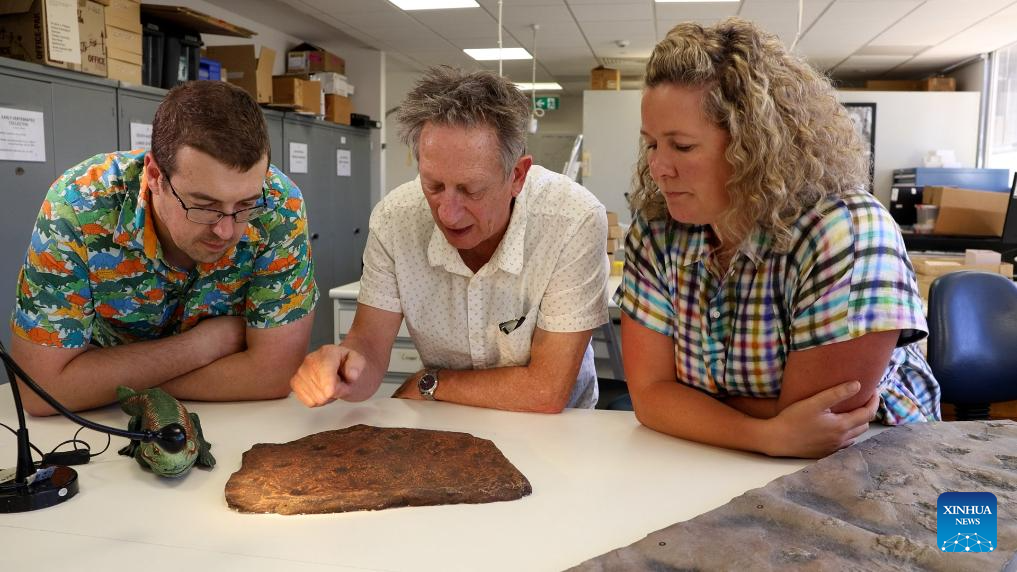
This image provided by Flinders University on April 29, 2025 shows palaeontologist professor John Long (C) and two fellow researchers analyzing a replica of fossilized footprints. Fossilized footprints discovered in Australia's Victoria have revealed that reptiles may have walked the Earth up to 40 million years earlier than previously thought, Flinders University said on Thursday.(Flinders University/Handout via Xinhua)
CANBERRA, May 15 (Xinhua) -- Fossilized footprints discovered in Australia's Victoria have revealed that reptiles may have walked the Earth up to 40 million years earlier than previously thought, Flinders University said on Thursday.
The tracks, found in rocks from the Carboniferous period, about 350 million years ago, suggest the presence of an amniote - a vertebrate with clawed feet, likely an early reptile, according to a press release from the Adelaide-based university.
The find dramatically shifts the timeline for reptile evolution, previously believed to have begun in the Northern Hemisphere around 318 million years ago, the release said.
"This is the oldest evidence in the world of reptile-like animals walking around on land," said Flinders University palaeontologist Prof. John Long.
It pushes their evolution back significantly and suggests they may have originated in Gondwana, the ancient southern supercontinent that included Australia, according to the study published in the latest edition of the journal Nature.
The tracks were unearthed in the Mansfield district in Victoria by local fossil enthusiasts, builder Craig Eury and winemaker John Eason, who later co-authored the study, according to the Australian Broadcasting Corporation.
"It was amazing how crystal clear the trackways are on the rock slab. It immediately excited us, and we sensed we were onto something big, even though we had no idea how big it was," Long said.
Originally thought to belong to amphibians, closer analysis revealed distinct hooked claws, a defining trait of amniotes, said Long. First studying the region's fossils 45 years ago, the professor led the team that verified the age of the rocks by comparing fossil fish species within the same layers to well-dated global samples.
Digital scans and heatmaps of the prints helped researchers reconstruct the creature's movement and confirm it walked on land.
The animal, likely a small, stocky, goanna-like reptile predicted by Long, represents a major leap in understanding how vertebrates transitioned from water to land life, researchers said. ■
